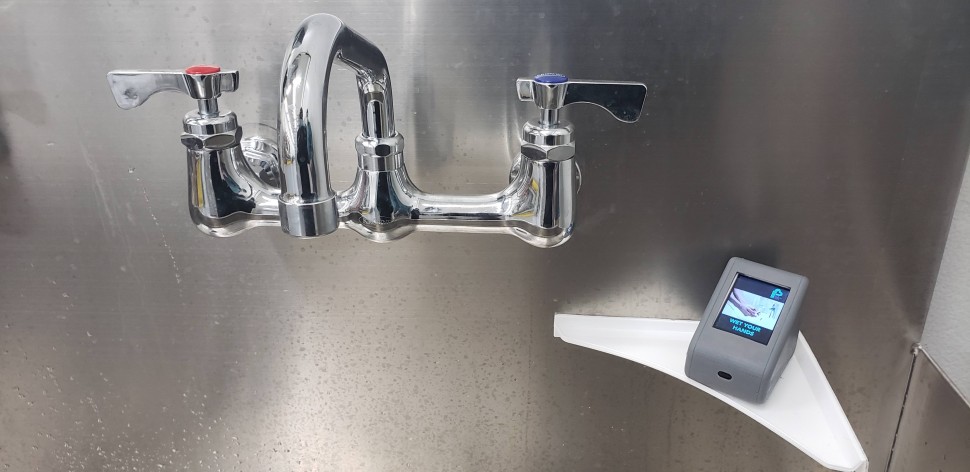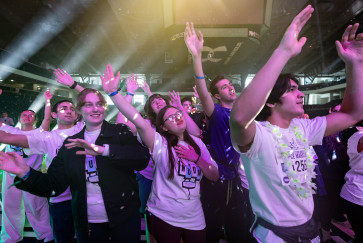When Ibraheem Alinur started City Health Tech in 2017, his goal was to address the lack of knowledge about proper handwashing techniques through education and design innovation. The plan was to play the long game, working with Chicago-area schools to educate students about handwashing while prototyping a device that would improve handwashing experience and technique.
That plan changed when COVID-19 cases started popping up in the U.S. As people became more aware of handwashing techniques as a way of preventing the spread of the virus, the McCormick School of Engineering senior said his plan for the rollout of City Health Tech’s first device was totally upended. 
“It completely accelerated our timeline because there was a total cultural shift that happened in a matter of a few weeks,” Alinur said. “Originally, we wanted to change the world by focusing on an educational plan and play the long game, but now we’re saying ‘okay this is an emergency. We need to do everything we can do to flatten the curve and slow rates of infection’ and that all starts with handwashing.”
Before COVID-19, Alinur and his team worked to develop a device dubbed Opal. The small, wireless device is meant to be placed next to a sink so that it can sense when an individual approaches to wash their hands. The device times an individual’s handwashing and plays engaging animations that show proper handwashing techniques.
After weighing different options for the release of the Opal device in the wake of COVID-19, Alinur said City Health Tech decided to make the device available for preorder for both individuals and businesses interested in implementing it more broadly.
While the device is sleek, functional and has exciting features, Alinur said that the journey to get to that device has had its share of setbacks. The key to continuing the work has been finding people who want to continue to support City Health Tech’s mission despite the inevitable challenges.
“For example, when we pitched to one of the schools we worked with, we didn’t have anything,” Alinur said. “We didn’t have a finished product. We had an idea, a rendering, and a plan. Things failed, things broke, but after the whole entire process, they said ‘thank you.’ That was something special.”

Alinur said that he attributes much of City Health Tech’s ability to evolve and innovate to the programs at The Garage at Northwestern that have helped him personally as an entrepreneur and helped the entire City Health Tech team push their ideas further. City Health Tech has participated in programs including Wildfire, X-Factor leadership program, and is a current semifinalist for VentureCat
“The Garage has been integral in providing that space where I can fail, try again, fail, try again, fail, and just continue going,” Alinur said.
The next step for Alinur and City Health Tech is figuring out how to take the Opal device from a business product to something that is next to every sink.
“At City Health Tech, our overarching mission is figuring out how can we get these devices in every place ever and figuring out how to be accessible,” Alinur said. “I think a big part of that will be working with corporate sponsors to fund having these devices in places where people may not be able to afford them. I think it is always important to talk about the people who are not in the room and the global and diverse communities that are out there.”


